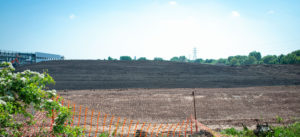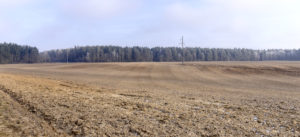Construction projects inevitably create waste and, as a result, a Site Waste Management Plan is required. While these are a legal obligation, under the regulations which came into force in 2008, they are an essential part of sustainable building.
Current legislation classifies all waste from excavations hazardous by default, and every site must have an effective waste management plan in place.
What is a Site Waste Management Plan?
A Site Waste Management Plan (SWMP) is a framework that provides a structured approach to waste minimisation and waste management. It is necessary for construction and demolition of buildings, structures and infrastructure.
The SWMP should identify:
- The client
- The principal contractor
- Who is responsible for managing waste
- A forecast of the types and volumes of waste
- Management of waste; this includes plans for reducing, reusing, recycling, recovering or disposing of it
- The supporting of contractors, ensuring waste management is legal
- Measuring the waste during the project
SWMPs provide the construction industry with an effective and efficient means to reduce waste, increase profit and maximise resource efficiency both on and off-site.
Why you need to produce a SWMP
To comply with 2008 regulations, an SWMP is necessary to avoid being penalised for offences. This ensures that the waste Duty of Care is managed in an appropriate way.
But there are other, equally important benefits to having an SWMP. The benefits should be a key driver for the industry so that their existence provides a return on investment in both time and money!
There are many direct and indirect benefits to implementing an efficient and effective SWMP. These include:
- Better use of resources
- Minimising waste
- Allowing the recovery of valuable materials
- Reducing costs and increasing profits
- Minimising and managing waste
- Demonstrating Duty of Care
Types of SWMPs
A basic SWMP is necessary for all projects between £300,000 and £500,000. This includes the value of materials, plant, labour, overheads and profit and excludes the value of land and VAT. This plan must also include a forecast of the date expected to be generated during the project and clearly define who will manage the waste.
The plan should:
- Identify the licensed operators who remove the waste
- Record the types of waste being removed
- Use European Waste Catalogue codes
- Record all transfer and consignment notes
- Note where the waste is being taken
- Monitor and update as works progress
The second type of plan is an Advanced SWMP is necessary for all projects above £500,000 in value; this is a more comprehensive than the Basic SWMP. The principal contractor should:
- Carry out a formal review every six months
- Collect data for auditing and monitoring waste
- Keep records of the types and quantities of wastes reused, recycled, recovered or disposed of both on and off-site
- Make comparisons between the forecasts and actual waste within 3 months of the completion date
- Provide explanations for any deviation from the SWMP. Estimates of cost savings need recording at the end of the project
Who is responsible?
Everyone involved in construction and demolition is responsible for implementing Site Waste Management Plans. The entire workforce must adopt site practices, engage with segregation activities, store materials correctly and not contaminate non-hazardous and insert waste skips with hazardous waste.
The SWMP should identify a responsible person who will maintain the plan. And when transferring responsibility, it should be recorded in the SWMP with a clear chain of responsibility.
Penalties
The penalties for non-compliance are set out in the Site Waste Management Plan 2008 Regulations. Anyone failing to comply face penalties including fines of up to £50,000 for summary convictions. Convicitions and idictments can result in an unlimited fine. There is a £300 fixed penalty notice for failing to provide a SMWP.
How ATG Group can help
Dealing with waste generated from construction or dredging operations can be very time consuming and costly. We can implement a bespoke Site Waste Management Plan and will classify the waste. Once classified, we will either dispose of it or treating it accordingly. This will allow you to continue working as normal, knowing we will do our bit to save you money in landfill costs and re-use materials where possible.
If you would like to know more about our SWMPs, contact us today.








